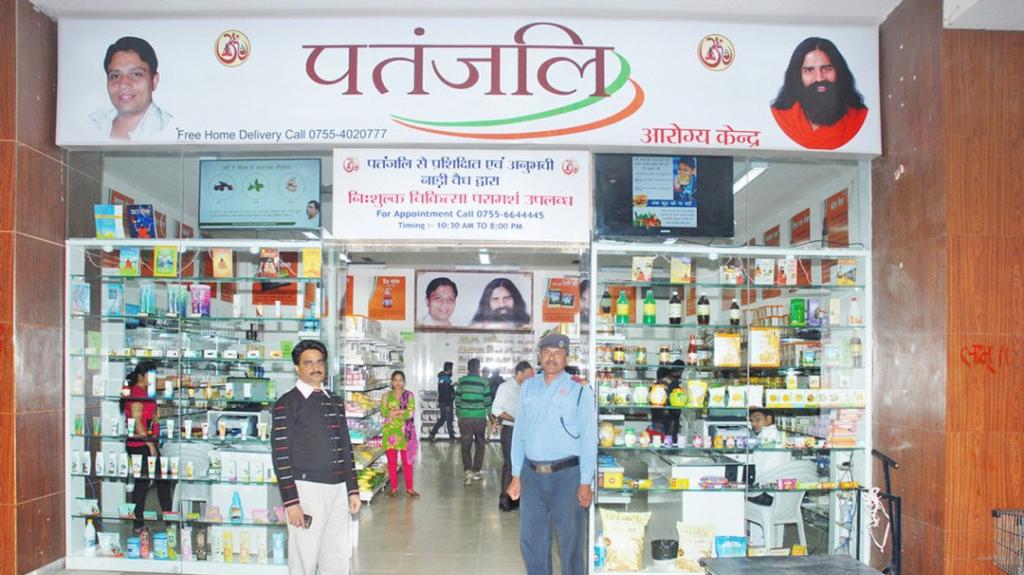It has been a decade since, a phenomenon called Baba Ramdev stormed to the Indian Political and Social scene. It was the time when most of the other Babas were minting big money by selling spiritualism to unsuspecting sadhaks. Baba Ramdev however was different, here was a Sadhu who was media friendly, was innovative and wished to mainstream Yoga. In a way, Baba Ramdev connected youth with Yoga like Kejriwal connected them with politics but the Kejriwal phenomenon was to fizzle out fast.
During his meteoric rise, Baba Ramdev and Patanjali Ayurveda Limited (Patanjali Ayurveda Limited) , have seen both sides of the spectrum, from a glorious start to being a target of the Pseudo Seculars but Baba Ramdev didn’t limit his presence to just Yoga and Spiritualism, but extended it to Politics. Then came the businessman Baba and and the rise of Patanjali Ayurveda Limited disrupted India’s consumer space which was dominated by MNCs such as Colgate, Hindustan Unilever Limited, P&G, and certain large Indian corporate such as Dabur, Godrej, Emami, etc. The company was started as a pharmaceutical unit in 1997 by Baba Ramdev’s protégé Acharya Balakrishna who owns more than 90 percent share of the company. His net worth is estimated to be around 5 billion rupees.
In FY 17, when the company was growing at double digit in terms of revenue, Baba Ramdev declared that Patanjali Ayurveda Limited would double the revenue to 20,000 crore rupees by March 2018. However, in last two years, the fortunes of Patanjali have nosedived and the sales declined by more than 10 percent to 8,100 crore rupees in March 2018. In the first 9 months of last financial year, the total sales of the company further declined to 4,700 crore rupees.
The major reason behind the fall of Patanjali Ayurveda Limited was aggressive expansion which diverted its focus from quality of the product. The executive of the company lacks software to track sales and lack of long term deal with transporters led to inefficiency. “We suddenly expanded, we started three-four new units, and so problems were expected. We have solved that network problem,” said Balkrishna.
In order to achieve fast expansion, Patanjali Ayurveda Limited started outsourcing of production and this resulted in problems in product quality. Recently Reuters reviewed 81 products of the company in a store and found that 27 are manufactured by other companies.
The company started many projects simultaneously and this led to delay in each of them. For example, the company aimed to complete a food plant project in Maharashtra by 2017 and Ayurvedic product factory in NCR by 2016 but now both projects are postponed to 2020.
In order to scale up, the company needs capital but Patanjali Ayurveda Limited is not a publicly traded company and loans dried up in last few years due to banking sector woes. Therefore the company started delaying the payment to suppliers and the money spent on advertising was also cut short. In 2016, Patanjali Ayurveda Limited was third largest advertiser on Indian television but as of now it is not even in top 10.
The USP of Patanjali was offering Ayurvedic products and it claimed of using no chemicals. But soon Hindustan Unilever and Colgate also started offering similar products.
The association with PM Modi and use of brand Modi helped the company in expansion. But when the sales of the company were hit due to demonetization and implementation of GST, Baba Ramdev criticized the government for it and its association with brand Modi ended. He campaigned for reelection of PM in 2019 but it seems that the PM Modi or the BJP doesn’t really care about him anymore.
The company tried to expand in Internet based businesses through launch of Kimbho app which was expected to take on Whatsapp but it proved disastrous, making the company a target of trolls and memesters.
The simultaneous aggressive expansion in many sectors and lack of experienced professionals to manage businesses has hurt the business prospects of the company. If Patanjali Ayurveda Limited wants to compete with MNCs, it needs to combine the Desi sentiment with corporate professionalism. The company should consolidate and focus on ‘quality; which used to be its USP otherwise the dream of and Indian MNC will shatter very soon. What the company needs to understand is that ‘product is king’, even the finest marketing techniques cannot not compete with superior product.
